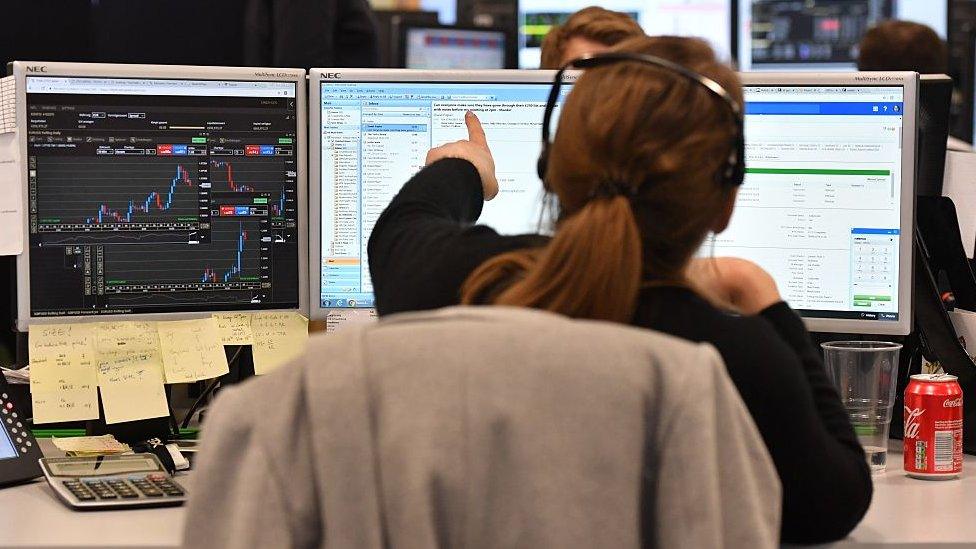Brexit: Businesses despair at prospect of no-deal
- Published
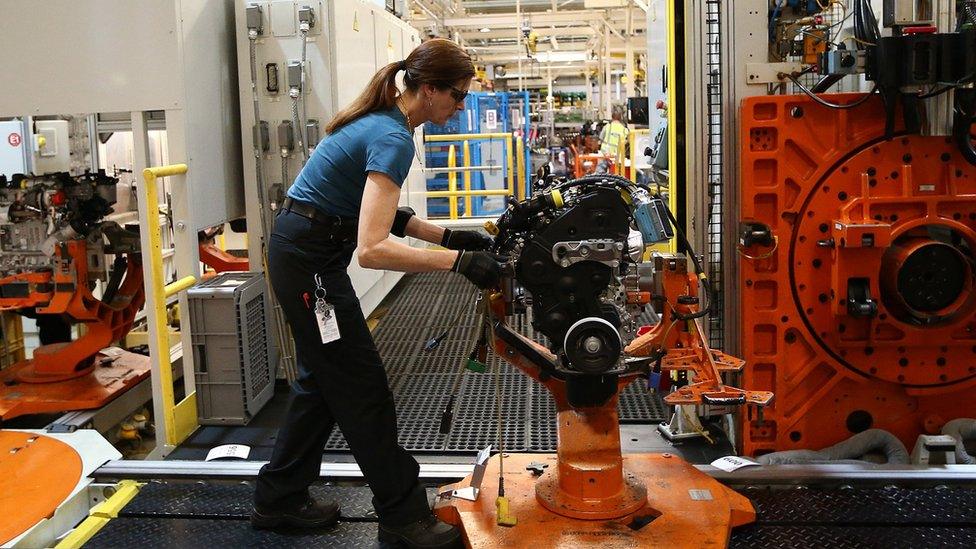
As a business journalist I spend most of my time with business leaders - most of who, regardless of the way they voted in the referendum, are holding their heads in their hands at the prospect of an economically damaging no-deal Brexit.
They simply can't believe that the UK government would risk whole sectors of the economy.
As a friend of mine recently pointed out, the business world is full of people who will tell you: "If I ran my company the way they are running the country I'd have been sacked long ago."
But as he also observed, countries aren't companies. There is a collection of concepts broader than shareholder value at work. A former remain-voting cabinet minister agreed and tried to describe what Boris Johnson personally, genuinely and deeply believes them to be.
First, having gone through all the angst of the referendum and the four years of wrangling since, there is no point ending up in a place where the EU is still calling the shots.
For example, let's say the EU reduces workers' hours under the working time directive. If the UK doesn't follow suit, the EU's right to unilaterally impose tariffs - as severe as they like - will be enshrined in a "free" trade agreement.
That is unacceptable - humiliating, even. It lacks political integrity, and accepting it just papers over the structural flaws in the relationship until the cracks inevitably appear again.
To coin a much-mocked phrase that may surface again this weekend - Brexit means Brexit.
Boosterism
Second, Boris Johnson thinks that the imposition of tariffs will prove to be a bit like the millennium bug: feared by Cassandras as Armageddon, costing money to prepare for but ultimately passing off with very little fuss - economic life goes on.
Dread warnings about the car industry will prove to be overblown, currency movements (sterling depreciation) will help offset tariffs for exporters, and importers will source more ingredients and components from the UK.
Third, boosterism is not fake. The prime minister genuinely believes that with a bit of pluck, a fair wind and the advantage of language, a great legal system and convenient global time zone, the UK will find a way to prosper in partnership with some of the fastest-growing parts of the global economy.
You can argue with almost every point made here - and god knows the arguments about them have dominated some of our lives for the last four years to the point of exhaustion.
The point is that the prime minister genuinely believes them to be true - most importantly point one.
Some have argued that if it is a case of potential tariffs maybe later - IF our rule books diverge and accommodations can't be found - versus swingeing tariffs now, why wouldn't you say "tariffs later, please"?
After all, we are experiencing the worst economic downturn in over 300 years - please not now. I hear business leaders scream this.
'Pretty long shot'
But politicians don't really understand business, never really have and haven't really listened to it properly for quite a while now. Their bottom line is the parliamentary party and the electorate. (Some would say in that order in this case.)
If true, that surely means there is ZERO chance of a deal.
The EU shows no sign of allowing us to play on its pitch without being able to cry foul if we pick the ball up and start running towards goal with it. The same cabinet minister told me he agreed a deal now looked like "a pretty long shot".
However, he pointed to the success minister Michael Gove and Maroš Šefčovič had in agreeing a solution - albeit temporary in some respects - to a situation in Northern Ireland that could have seen the UK risk widespread condemnation by breaking international law.
But that was more about process than principle. It was more about checkpoints and certificates than constitutional fundamentals.
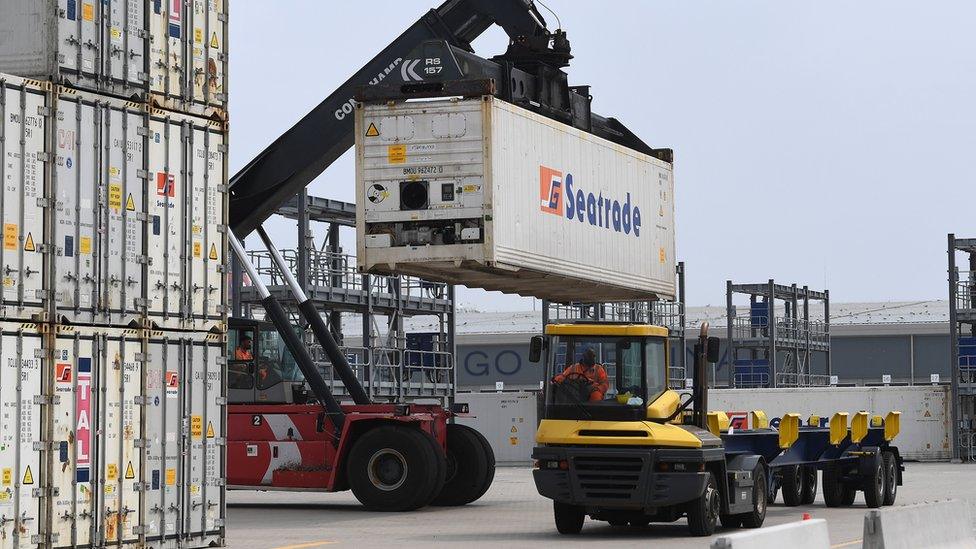
One possible compromise suggested would be some sort of body to referee how serious the fouls and how heavy the penalty should be.
But how would you constitute such a body - maybe put a few representatives from EU countries along with a delegate from the UK with a referee in charge? But hang on, have you not just reinvented the EU Commission?
The appropriate body, say the hard Brexiteers, is the World Trade Organisation (WTO) - it already exists.
But try telling that to a Welsh sheep farmer who will see the WTO uphold the EU's right - obligation, in fact - to slap a 40% tariff on the 70% of Welsh lamb that heads for the EU.
Same goes for those who land tonnes of cuttlefish and mackerel who may catch more in "our waters" but will have nowhere to sell them without a trade deal.
There may yet be a deal but it's looking very hard to see a landing zone that reconciles these economic interests with the constitutional purity that the prime minister genuinely believes is required.
Others will say that purity is an illusion. All international trade treaties involve a sacrifice of sovereignty - including membership of the WTO. Witness the battle between Airbus and Boeing, with the WTO approving tariffs in both directions as reasonable punishments for governments doing "whatever they want" to support their own industries.
So here we are - to the horror of most businesses - at the edge of the cliff.
As for postponing the whole damn thing till a global pandemic passes - forget it. The quote-loving PM would no doubt agree with Henry Kissinger who once said, "whatever must happen ultimately should happen immediately".
If it does happen, businesses insist that some industry sectors will suffer, jobs will be lost and most business leaders will look on in despair.
Related topics
- Published13 December 2020
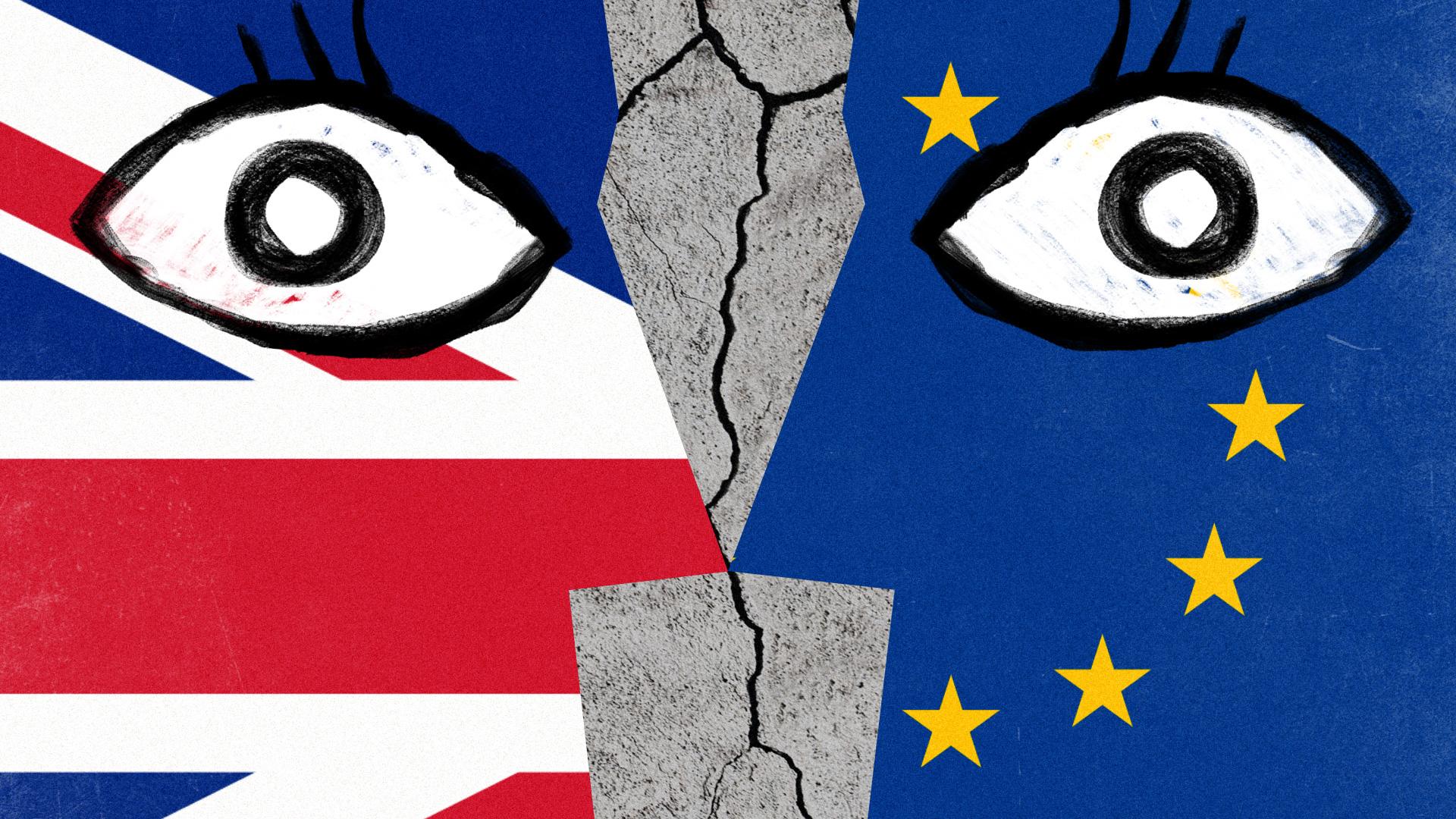
- Published18 December 2020
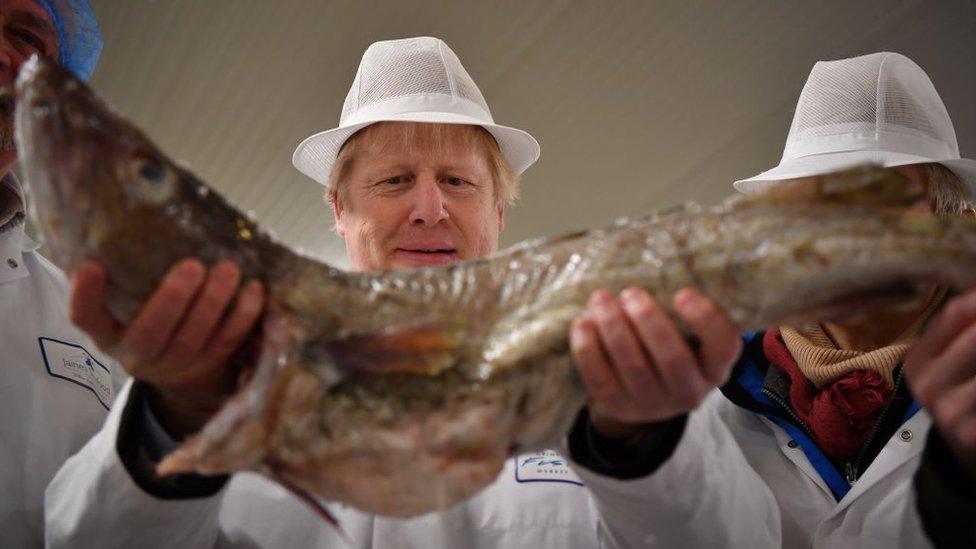
- Published11 December 2020
